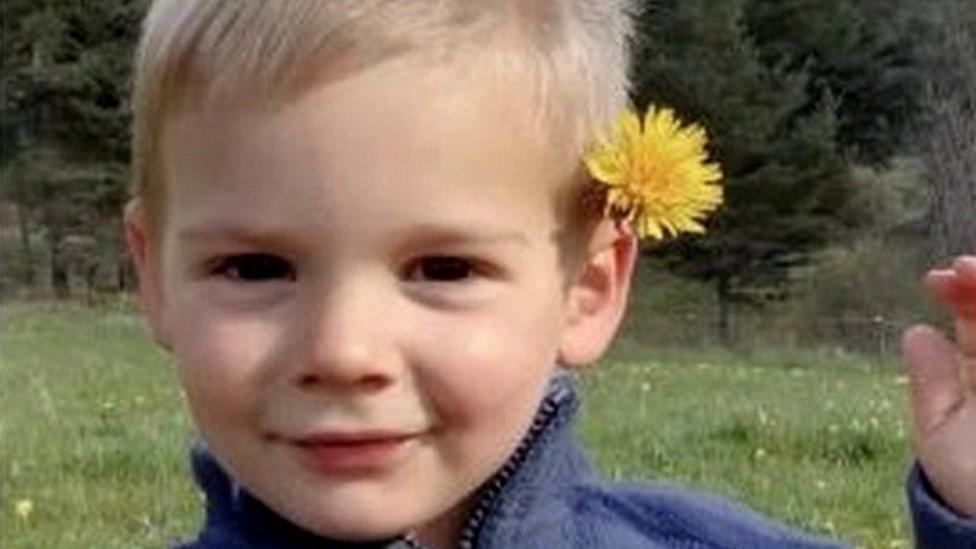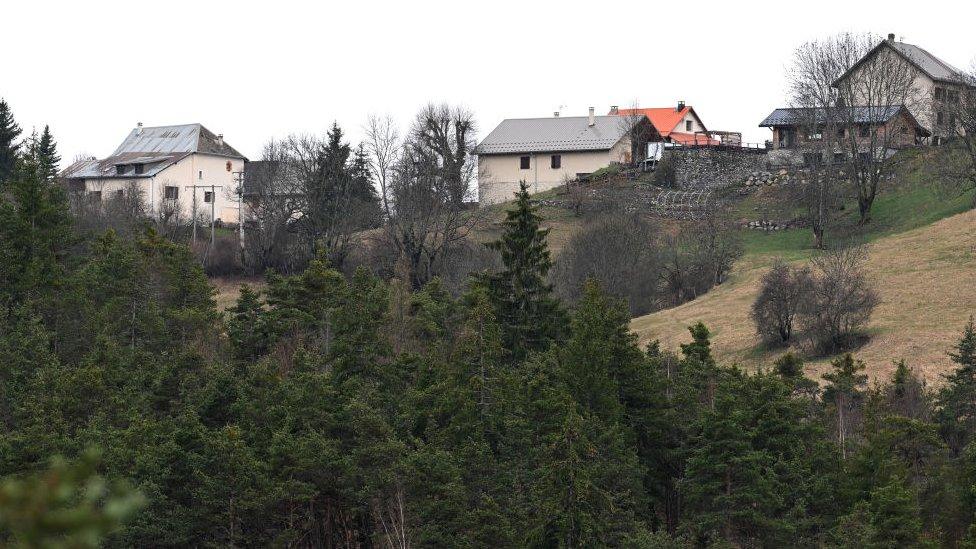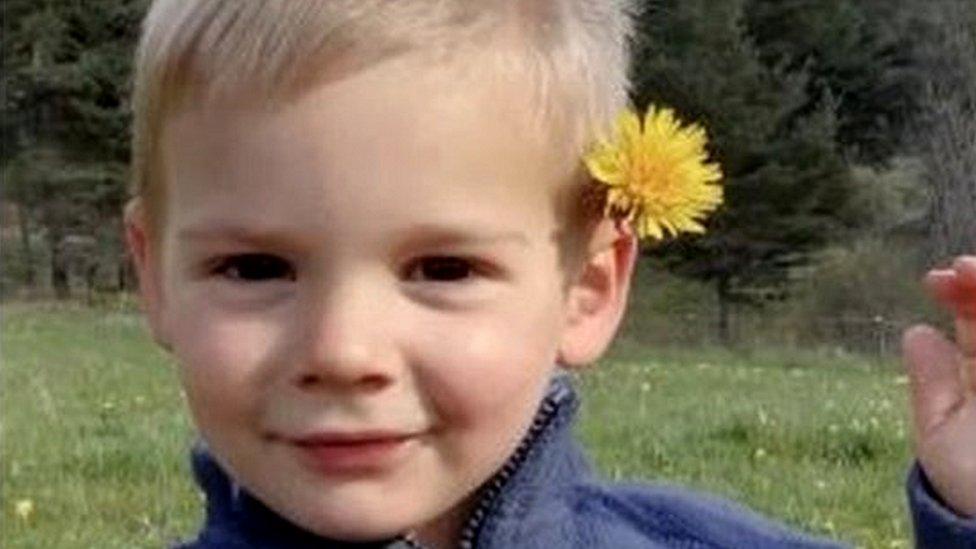Clothes of French toddler Emile Soleil found near remains in French Alps
- Published

Emile Soleil had been dropped off at his grandparents' house hours before he went missing
Three days after remains of a French boy were found along an Alpine path not far from where he disappeared nine months ago, police have found some of the clothes he was wearing close by.
However, prosecutors say the mystery of Emile Soleil's disappearance in July last year has still not been solved.
A hiker found a skull and some teeth on Saturday, about 25 minutes' walk from the village where he was last seen.
The skull was quickly matched to the missing boy's DNA.
Now a T-shirt, shoes and shorts that Emile was wearing on the day he vanished have been recovered, scattered over a small area about 150m (500ft) from where his remains were found.
Details of the new find came from local public prosecutor Jean-Luc Blanchon, who said Emile's death was still unexplained. It is still unknown if Emile Soleil was the victim of an accident or a crime.
"These bones by themselves do not allow us to say what the cause of Emile's death is," he told reporters. "Between a fall, manslaughter or murder, no theory can be treated as more likely than another."
Emile, who was two-and-a-half, had been in the village of Haut-Vernet in south-east France for just a few hours when he went missing. His disappearance has been a cause celebre in France ever since.
He had gone to stay at his grandparents' holiday home in Haut-Vernet, a village of 25 people at an altitude of 1,200m (4,000ft) on the slopes of the Massif des Trois-Evêchés mountain range. He was last sighted by neighbours walking on the only street in the village in a yellow T-shirt and white shorts at 17:15 on Saturday 8 July.
Despite long and widespread searches of the entire area, no trace of the boy was found.
Two days after a re-enactment of his disappearance last Thursday involving 17 people, a local woman out walking just over a kilometre from Haut-Vernet stumbled on some of his remains.
"This heart-breaking news was feared, and the time has come for mourning, contemplation and prayer," the child's parents said in a statement.
The child's skull was sent away for analysis by forensic teams. Sniffer dogs, soldiers, police and firefighters scoured the area for more evidence.

Only 25 people live in Haut-Vernet where Emile disappeared
Jean-Luc Blanchon told a news conference on Tuesday that the skull had sustained "small fractures and cracks" after the boy's death, as well as bites from one or more animals.
"No trauma has been observed [on the skull] ante-mortem," he stressed, adding that it was clear the remains had not been buried in the ground.
What remains a mystery is why the boy's skull and clothing had not been detected earlier. The rest of his remains are yet to be found.
A spokeswoman for France's gendarmerie (military police) has already suggested the bones could have been placed there by a person or an animal, or they could have been shifted by changing weather conditions. Or they could have been missed entirely during the extensive searches of the area last summer.
The public prosecutor said the female hiker had found the bones between 12:00 and 14:00 on Saturday afternoon on a "narrow, forest path" which she remembered walking on more than a month earlier. The clothes were found further away, close to a stream, he explained.
"We cannot be sure Emile's body was already present in the search area," said the prosecutor, or "that every square metre was covered by a member of the search teams". He also made the point that because the original search took place when the undergrowth was especially thick, it was possible the summer temperatures could have affected the sniffer-dogs.
He accepted that his conclusions would not satisfy anybody, including Emile's family and investigators, and said the search would resume on the ground, probably on Wednesday.


- Published1 April 2024
